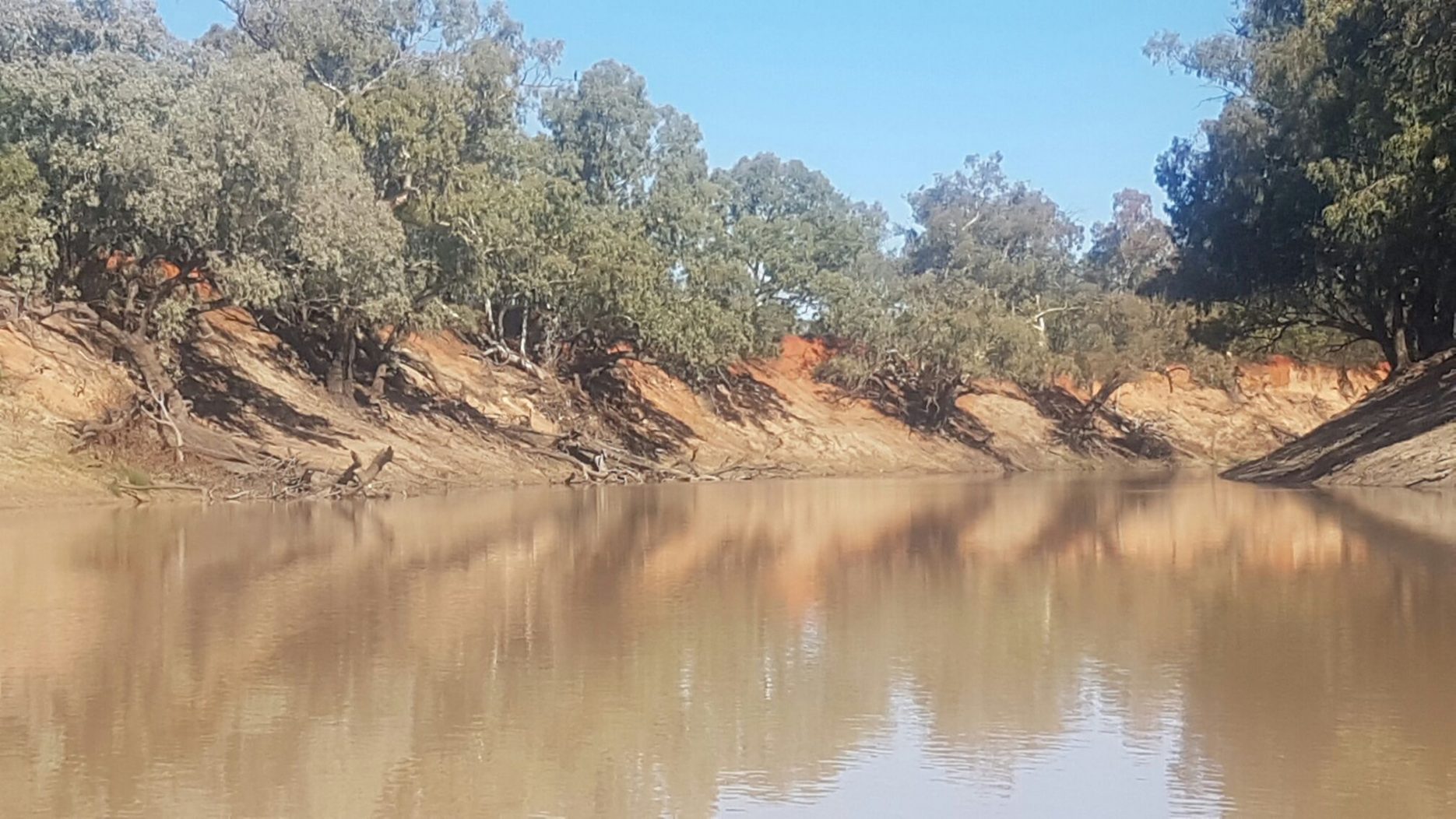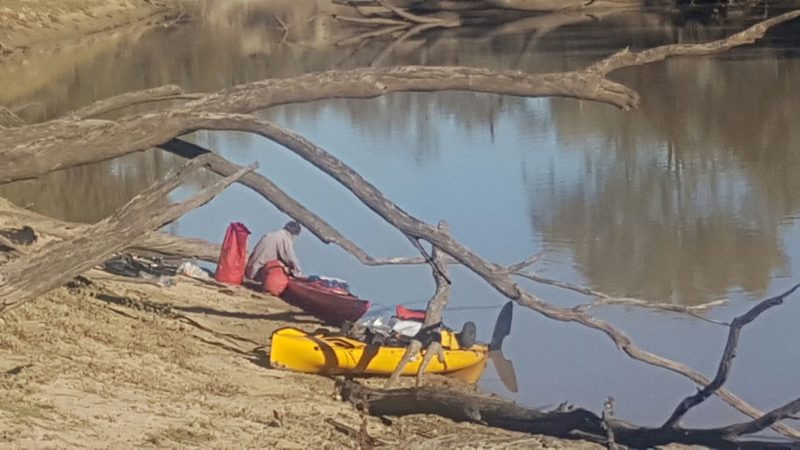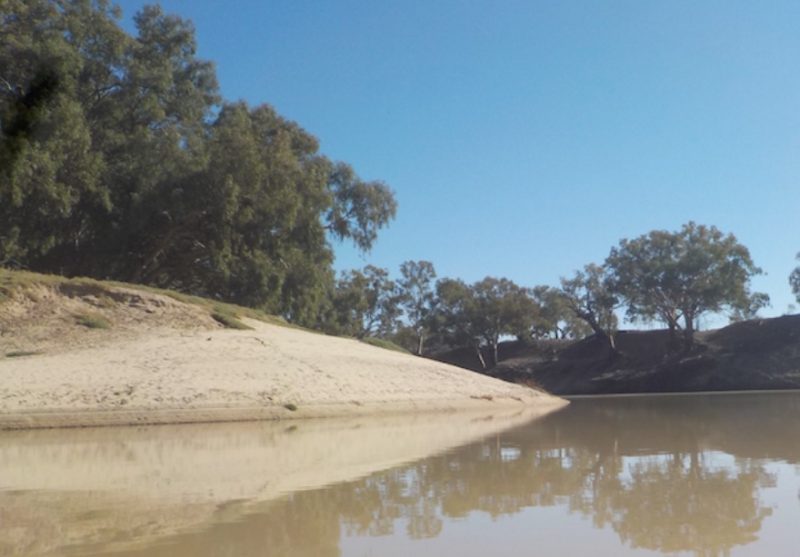If you relied on buying food in the towns along the way you could complete the trip along the Darling without undue suffering. A generation ago anyone who travelled the Darling carried a gun and could live off the land but these days that’s not really an option despite the large numbers of ducks, goats and pigs we sighted. Luckily it’s still acceptable to catch yellowbelly and cod which on top of a reasonable supply of staples like rice noodles and breakfast cereal would see you through. In our case we had assumed only the most basic supplies could be purchased in the towns along the way but we found there are excellent shops in Brewarrina, Burke, Wilcannia, Menindee and Pooncarie so “only” the stretch of about 650kms, Burke to Wilcannia required food drops and more serious planning (though Shindy’s Inn at Louth also offers a very basic range of consumables, certainly enough to survive on). As we drove from Wentworth to Brewarrina we left food drops which included everything we thought we’d need at the Pooncarie Hotel, Bindara Station (about 90km downstream from Menindee), Bourke and Wills Motel in Menindee, Nelia Gaari Station (about 18km upstream of Tilpa), Shindy’s Inn Hotel at Louth and at the Riverside Motel in Burke. The proprietors of each of these establishments were happy to assist and we returned the favour and stayed a couple of nights in their paid accommodation while passing through.

The main logistical issue we faced was carrying water which took up almost as much space and contributed more weight than the food. We carried enough bottled water to drink on each leg even though we carried two water filters between us, both of which worked well and provided water which seemed good enough to drink without boiling. Even so we only used the filtered water for cooking, tea and coffee. The water out of the filters, including D.’s glass fibre superfilter still held a slight brown tint from the river but there was no hint of salt at any stage, only a vaguely earthy aftertaste. In the few reports we read prior to making the trip the quality of the river water was always an issue. The mighty Leyland Brothers reported in their book “Big, Ugly River” that the title for their account (and not a bad read at all, I might add) came from the local Aboriginal tribes’ distaste for the Darling river water.

It would be interesting, and challenging one day to travel the river with bare essentials, fishing and hunting for meat, but there’s no need. While D. and B. relied on dehydrated foods a lot of the way this is not necessary either. You can pack enough interesting and flavoursome food into a single dry bag to last through one of the longest sections and if something goes wrong, and your supplies are raided, as W.’s were at Bindara Station by the pair of resident foxes, the ever hospitable and accommodating locals would be sure to help you out.
We are hardly gourmets, but our favourite meal on the riverbank, made of ingredients which kept for weeks without spoiling was “Pasta Dei Re” The Pasta of Kings.
Cut half a salami into strips and fry until crisp. Set the salami aside. Fry a finely chopped onion until it’s clear then add three cloves of chopped garlic and a finely diced chilli. Cook it a little longer until the onion begins to turn a light, golden brown. Add half a cup of olive oil. Get it hot then add as much boiled pasta as you need. Throw the salami back in. Mix it all up then add half a pack of thinly sliced parmesan cheese and plenty of salt and pepper. When the cheese starts to melt through while stirring take it off the fire and serve, adding heaps more parmesan and dribbling each plate with more olive oil. It’s delicious, easy to make, the ingredients can be bought anywhere and can survive for a couple of weeks in the bottom of a kayak.




